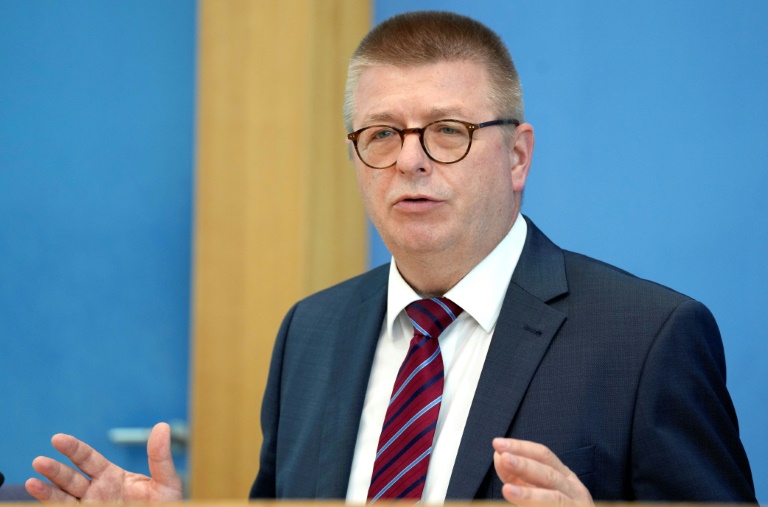German federal prosecutors said Thursday they are probing alleged hacking attacks against lawmakers ahead of this month’s German election that Berlin has blamed on Russia.
A spokesman for the prosecutor’s office told AFP it had opened “an investigation on suspicion of espionage”, when asked about accusations made this week by the German government about “phishing” attacks against MPs by Russian intelligence.
Berlin this week had strongly criticised what it called Russian attempts to influence the September 26 election of a new parliament and Angela Merkel’s successor as chancellor.
It pointed the finger at hackers from Russia’s “Ghostwriter” group which reportedly specialises in spreading disinformation. German intelligence believes they have been trying to gain access to the private email accounts of federal and regional MPs.
German authorities say Russia’s military intelligence service GRU is behind the attacks and has targeted in particular politicians from Germany’s ruling Christian Democrats (CDU) and Social Democrats (SPD), news weekly Der Spiegel reported.
Germany’s domestic intelligence service chief Thomas Haldenwang warned in July that such hackers had successfully made off with personal information that could be exploited in the weeks before the general election.
The race is extremely close, with the SPD ahead of the CDU by just three to four percentage points.
The European Union and United States have repeatedly accused Moscow of attempting to meddle in democratic elections, something the Kremlin has disputed.
– ‘Influence operation’ –
A German foreign ministry spokeswoman, Andrea Sasse, on Monday called for an “immediate stop” to the cyber attacks and threatened Moscow with unspecified “consequences” if it did not cease them.
Sasse said the onslaught had used “phishing emails among other methods” to access the MPs personal log-in data “to steal their identities”.
She said the attempts could have served as “preparation for an influence operation, for example a disinformation campaign, in the general election”.
Germany has accused Russia of several cyber attacks on its soil.
The most high-profile incident blamed on Russian hackers to date was a cyber attack in 2015 that completely paralysed the computer network of the Bundestag lower house of parliament, forcing the entire institution offline for days while it was fixed.
In another prominent case before a German court, a Russian man is on trial over the assassination of a former Chechen commander in a Berlin park, allegedly on Russia’s orders.
Earlier this month a German employee of a security company went on trial for allegedly passing on floor plans of parliament buildings to Russian secret services.
Moscow has denied being behind such actions.
The current “phishing” case comes at a time of particularly fraught ties between Berlin and Moscow over the espionage cases, the poisoning and jailing of Kremlin critic Alexei Navalny as well as repeated cyber attacks against Western allies.
The West has accused the Russian government of poisoning Navalny with the Soviet-era nerve agent Novichok in August 2020, which the Kremlin denies.
Navalny was treated in Berlin before returning to Moscow several months later. Upon landing at the airport, he was imprisoned, sparking demands from the West for his release.










